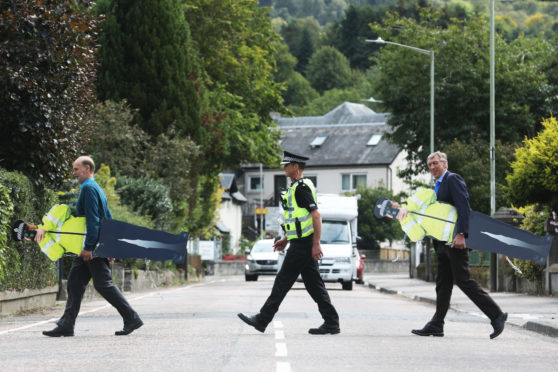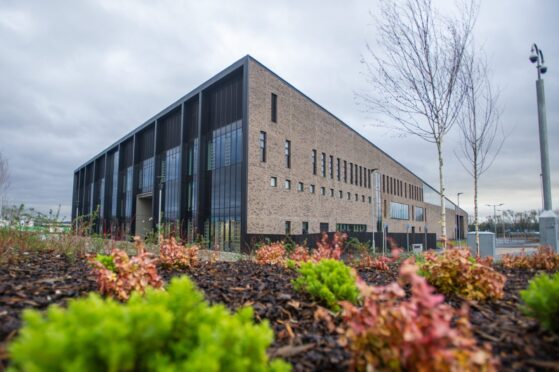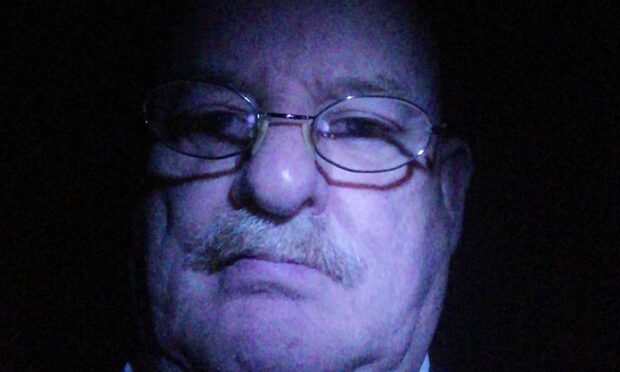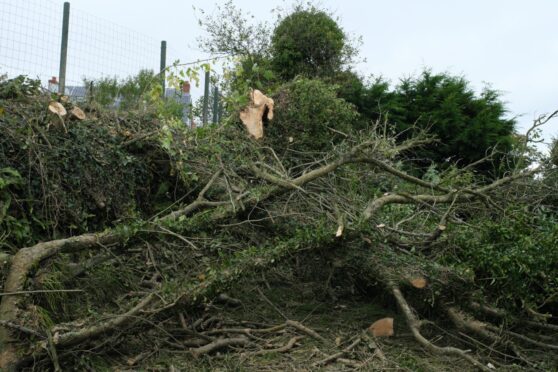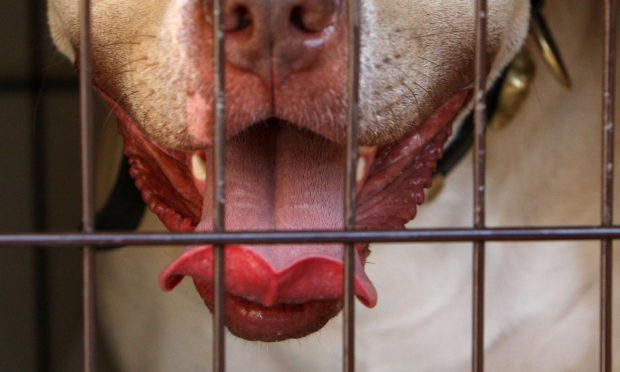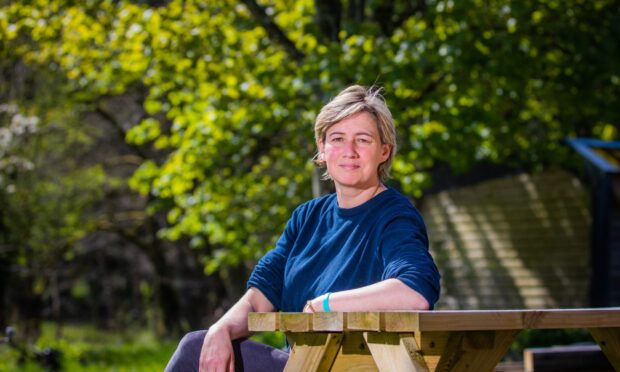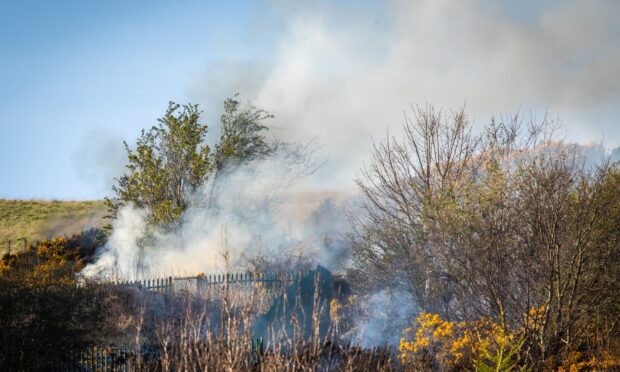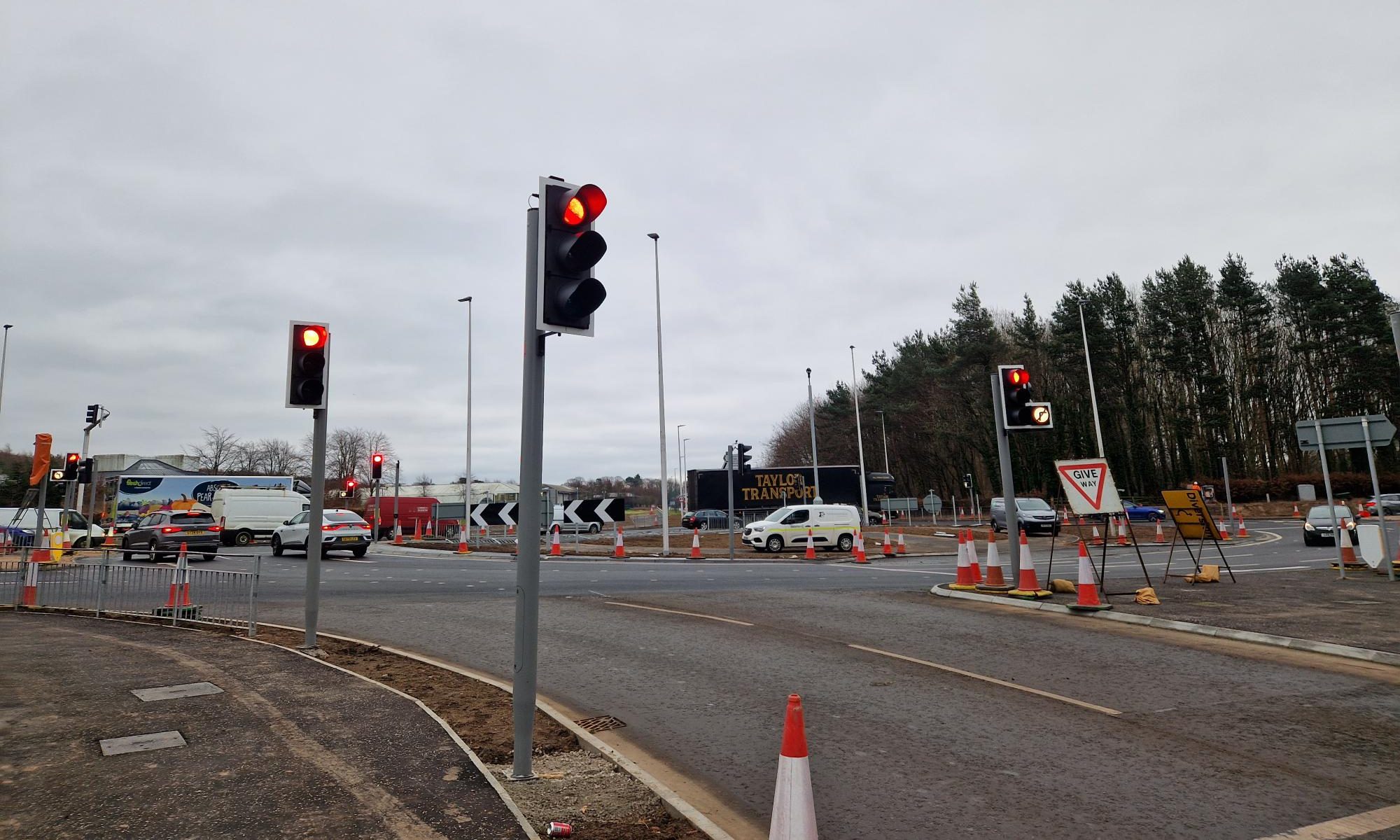A Perthshire community has welcomed its latest weapon in the fight against speeding drivers.
Standing at six feet tall and armed with handcuffs, truncheon and speed gun, Pop-up Jim poses an imposing figure at the roadside — even thought a light breeze could knock him on his back.
The cardboard police officer has been helping put the brakes on drivers around the Aberfeldy area.
He was drafted in by local community councillors, who said residents were fed-up with motorists racing through their village at, often, double the 30mph.
Cardboard policemen have been sporadically popping up around the country for a few years now.
At first, the concept sounds laughable: Who gets intimidated by a cardboard cut-out? And once people get used to the idea, won’t they just go back to speeding?
But the cardboard officers have proved a hit with communities.
They are now so popular that new diversity laws dictate that at least a fifth of the cast of the new Line of Duty series must be made out of cardboard.
Simply put, the cut-outs are popular, because they are hugely effective. And presumably, as cheap as chips.
The good people of Coupar Angus proved the theory last year, when they installed police scarecrows at the side of the A94, near the scene of a tragic accident.
The stuffed mannequins weren’t exactly life-like, but their high-viz vests had the desired effect on on-coming traffic.
The police and the council initially had concerns about the scare-cops, who were put in place without the proper consent. But they allowed them to stay, ahead of work on an authorised traffic calming scheme on the same spot.
But if we know they’re cardboard, why are they so effective?
After trials in America a few years ago, Yale University assistant professor David Rand told the Boston Globe there was psychology at work.
“Even though, rationally, you understand that’s not a real cop, that feeling of being watched taps into a sort of intuitive level below conscious reasoning, and that affects your behaviour,” he said.
Yes, the battle for more bobbies on the beat must continue. But, in the meantime, we should raise a toast to members of the wafer-thin constabulary for a job well done.
